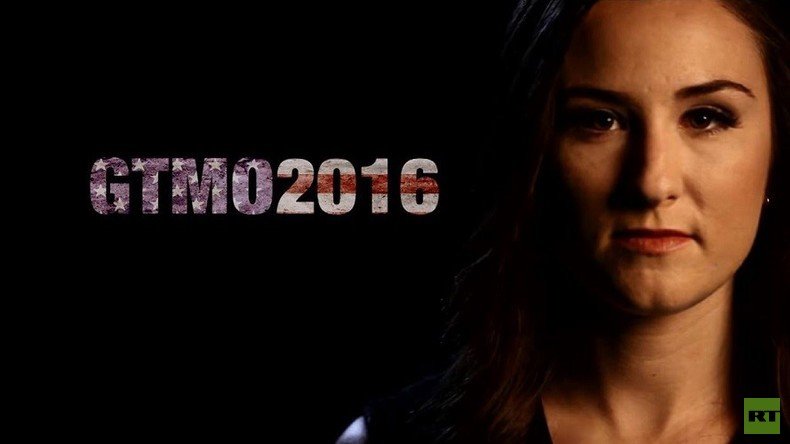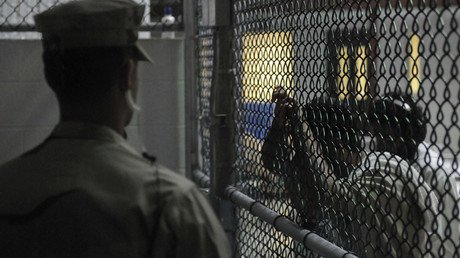GTMO 2016: Special report on the future of the detainment camp

Closing the Guantanamo Bay prison has long been a point of contention in the US, with strong opinions on both sides. If it is shut down, what will happen to detainees who can’t be released? RT went to the notorious prison to talk to people inside and out.
The history of Guantanamo Bay has been marred by accusations of torture of detainees and months-long hunger strikes.
Last January, in an unprecedented move, the personal diary of detainee Mohamedou Ould Slahi was published, providing a firsthand perspective of life inside the world’s most infamous prison. Slahi’s book, ‘Guantanamo Diary,’ describes in highly redacted yet dramatic style his incredible ordeal from the moment his rendition plane landed in Cuba, where he and other detainees faced abuse, torture and other atrocities.
Once on the island, Slahi was forced into solitary confinement where he says he “was on the edge of losing his mind.” The diary describes how Slahi was subjected to sleep deprivation, death threats, sexual humiliation and intimations.
Yet Slahi’s revelations are almost singular. The government has prevented other detainees ‒ like Ammar al Baluchi, one of the few men at Gitmo who has been charged with a crime ‒ from talking about what happened to them… even to their own lawyers.
The government “has classified Mr. al Baluchi’s own memories of what happened to him, to prevent him from providing information that would allow someone, somewhere to seek accountability,” James Connell, one of al Baluchi’s lawyers, told RT.
Exactly 10 years ago Friday, criminal investigators learned of the first deaths from inside Gitmo.
“There’s some sort of dark history in the past that has happened before the DOD has taken over and so people have concerns,” Navy Captain Christopher Scholl told RT America. “If you google images for Guantanamo Bay, often images of Camp X-Ray from the first 92 days ‒ 14 years ‒ ago comes up, and the media keeps on using” those images.
But now, he says, it’s a completely different picture.
Gitmo opened as a prison at the US naval base in Cuba under the administration of President George W. Bush following the attacks of September 11, 2001. President Barack Obama promised during his 2008 campaign that he would close the infamous detention center in Cuba. It’s a promise he’s, as yet, been unable to keep thanks, in part, to strong opposition in Congress. Of the 779 men who have been held there, only 80 detainees remain ‒ 28 of whom are cleared for release ‒ but the conditions they face and what might happen to them in the future remain unclear.
For a special report airing Friday, RT America’s Simone Del Rosario went to Guantanamo Bay to investigate if and how the prison would be shut down, and to see in what conditions those detainees are living. What happens, she asks, when you reach the irreducible minimum, the dozens of forever prisoners deemed too dangerous to release?
“There’s a distinction between detainees and prisoners, prisoners are held with an objective of rehabilitating them from the behavior that led to the previous crime,” Admiral Peter Clarke, commander of Gitmo, told RT. “These are law of war detainees who are here because at one point they made it their job to try to kill Americans.”
The focus now is on what to do with the population, especially as the detainees age. Del Rosario takes a look inside the detention facilities currently being used, to see what the cells look like. She talks to current and former guards deployed at Gitmo, those tasked with taking care of “the worst of the worst.”
She also speaks with lawyers for two men who are still detained in Cuba, one who has been cleared for release and one of the few who has actually been charged with a crime. What will happen to them if Obama is able to fulfill his campaign promise during his final days in office? Will the upcoming presidential election change their future?
Watch RT America’s special on Guantanamo Bay on Friday, June 10 at 5:00pm Eastern Time, on air, online and on YouTube.













